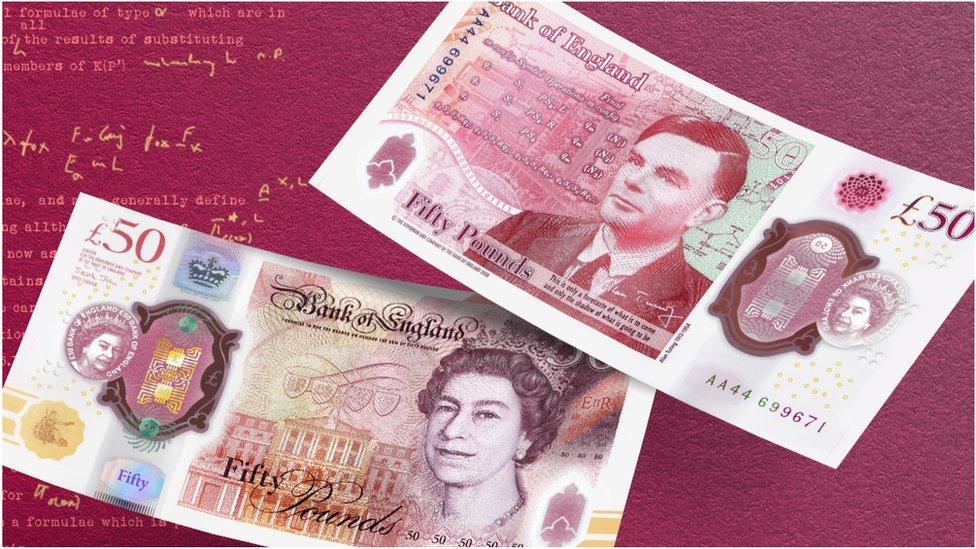Trafalgar Square: LGBT+ military charity backs Turing statue idea
- Published
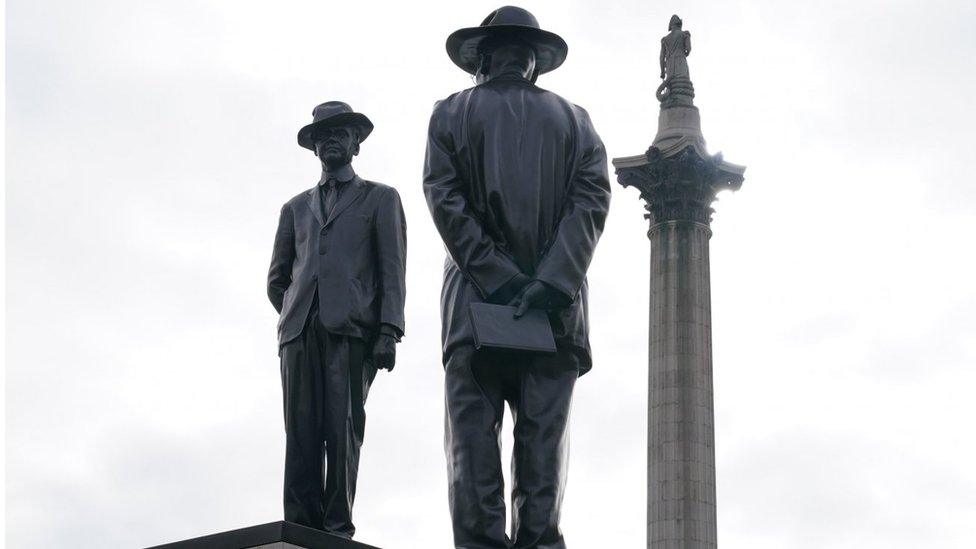
The Fourth Plinth currently features Samson Kambalu's piece Antelope
An LGBT+ armed forces charity has backed a suggestion of placing a statue of a wartime codebreaker Alan Turing on Trafalgar Square's Fourth Plinth.
The idea was initiated by the defence secretary Ben Wallace in the House of Commons last week as he addressed a review into historical mistreatment of LGBT+ community in the military.
Same sex relationships were banned in the armed forces until the year 2000.
Ben Wallace also apologised to LGBT veterans for historical mistreatment.
Although he didn't name Trafalgar Square, the defence secretary said it would be "the greatest tribute" to the success of someone from the LGBT community for a statue of Mr. Turing to be placed on "the blank plinth, (with) the mayor's gimmicks or whatever it is every five minutes."
Alan Turing is considered to be the father of computer science, and he played a key role in decrypting coded messages used by Nazi Germany during World War Two.
1912 – 1954
1912 Alan Mathison Turing was born in West London
1936 Produced “On Computable Numbers”, aged 24
1952 Convicted of gross indecency for his relationship with a man
2013 Received royal pardon for the conviction
Seven years after the war he was convicted of indecency for his relationship with a man, losing his security clearance and the job at the Government Communications Headquarters.
He was chemically castrated following his conviction in 1952 and died two years later aged 41. Turing was posthumously pardoned in 2013 and a tribute to him now features on a £50 note.
The executive Chairman of Fighting With Pride charity, Craig Jones, told PA News: "His achievements changed the world, and therefore it would be incredible to see him recognised in this way in position just yards away from Admiral Lord Nelson whose immortal memory we celebrate."
Trafalgar Square's Fourth Plinth currently features Malawi born artist Samson Kambalu's piece, titled Antelope, depicting a 1914 photograph of European missionary John Chorley and Malawian Baptist preacher John Chilembwe, who fought against colonial rule.
A spokesperson for the Mayor of London said: "The Fourth Plinth is one of the world's most renowned sculpture prizes and continues to provide an important platform for artists, transforming careers and supporting a diverse range of voices that are often underrepresented in the art world."

Follow BBC London on Facebook, external, Twitter , externaland Instagram, external. Send your story ideas to hellobbclondon@bbc.co.uk
Related topics
- Published5 July 2021
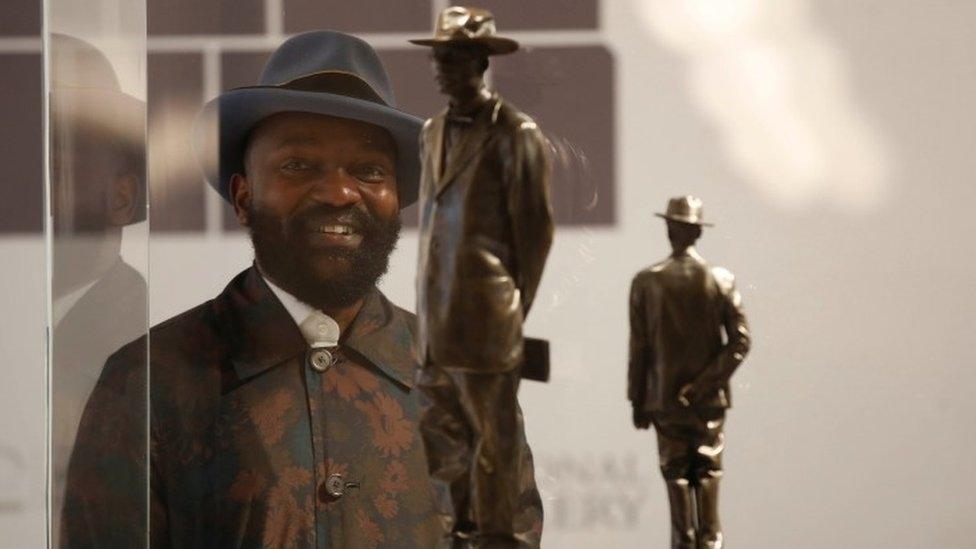
- Published22 June 2012
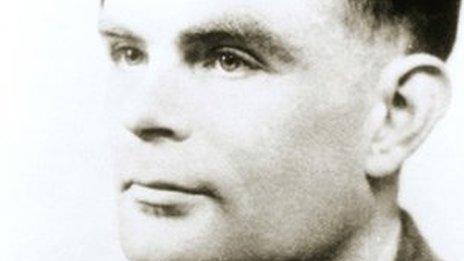
- Published28 March 2018
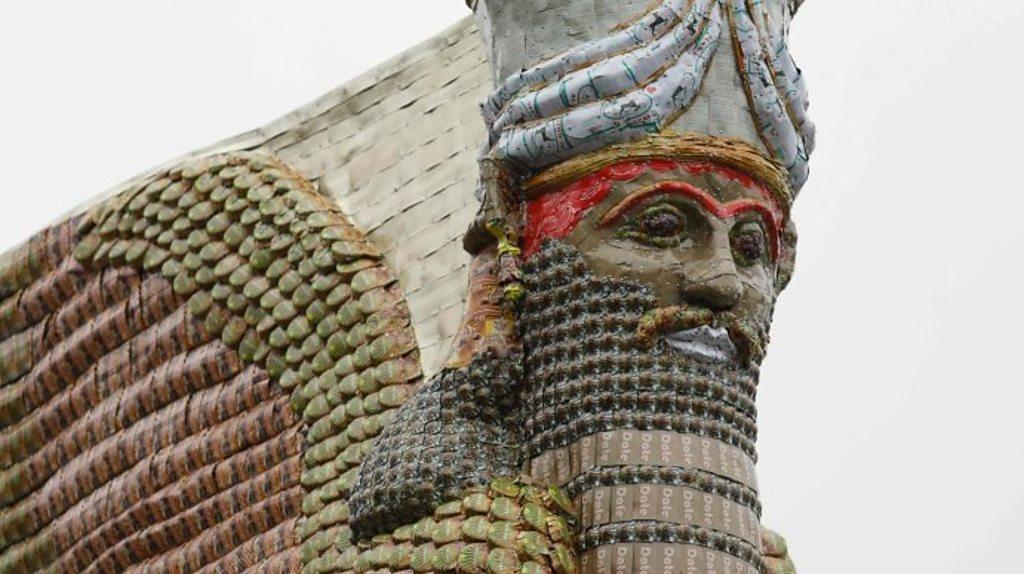
- Published23 June 2021
